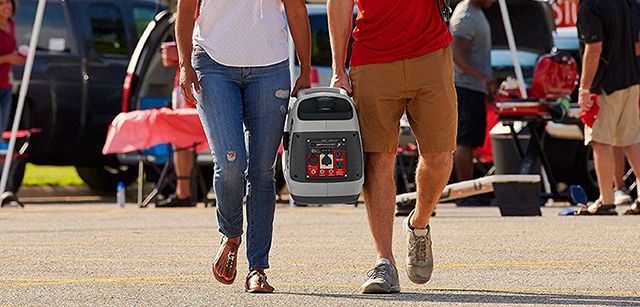Generator fuel types

Whether it’s to power your home in the case of an outage or to power your speakers at the beach, having a generator opens up a world of possibilities when it comes to power. And although you likely have an idea of what you need to run before you purchase one, one thing that many people don’t take consider is the fuel they’ll be running it with. Here’s an overview of your three main options.
Which generator is right for you? Find out everything you need to know before choosing.
Diesel
Relatively inexpensive and accessible, diesel has a longer shelf life than petrol but the service costs associated with diesel engines can outweigh this benefit. In the case of PTO generators, however, this potential pain point can be an advantage – particularly for farmers. Being able to turn a tractor into a mobile power source allows you to use diesel on only one engine, minimising the costs associated with servicing two. But because the average generator owner doesn’t have a tractor on standby it’s worth considering how much power you require, and if a standard/industrial generator can do the job instead.
Due to the larger size and power of diesel engines compared to petrol engines which are typically smaller, generators powered by diesel are typically only seen in the 8kW range.
Petrol
If you’ve already done a bit of research, you’ll know that the majority of portable generators run on unleaded petrol. It’s accessible which makes them easy to refuel, but it’s also highly flammable and can be expensive compared to other fuels.
One way to get around the issue of cost is to go for an economic option. And using the latest technology on the market, Honda’s range of inverter generators require far less fuel and boast a longer run time than some of their standard petrol counterparts.
LPG
Affordable and easy to store, LPG is a popular option for home backup generators. It burns cleaner than petrol or diesel, storing fuel is simple and LPG generators run much quieter than petrol powered engines. The biggest consideration with LPG as a fuel source, however, is the fact it’s highly flammable. So where generators are attached to standalone tanks it’s essential that the seals are tight and that tank changes are made safely.
It’s also possible to use LPG to power backup generators that attach directly to your home they can be connected to natural gas well, providing an even cleaner and quieter alternative to power your home in the case of an outage.
Here at OMC, we have a wide range of generators that cover every application. If you have any questions about which might be right for you, don’t hesitate to get in touch.